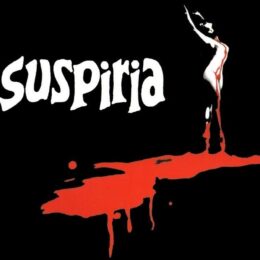5 Italian movies you MUST know!
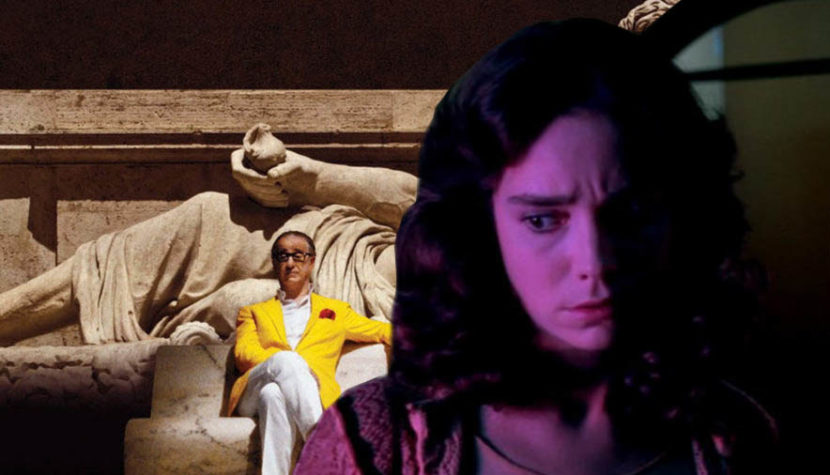
Above all, however, it is the birthplace of Fellini, Antonioni, Visconti, Pasolini, Tornatore, Argento, Sorrentino and many, many other talented artists. It was also here, more precisely on the island of Lido in Venice, that the first film festival in the world was held in 1932. In this respect, the Italians were absolute pioneers and even the French competition in Cannes, although today undoubtedly enjoying greater prestige and media interest, cannot boast of such a rich, almost ninety-year history. To choose just five representative of hundreds of great Italian productions is an incredibly difficult task. I made sure that the titles I selected were as diverse as possible and would allow you to get to know the widest possible spectrum of cinematography from the Apennine Peninsula.
Bicycle Thieves (Ladri di biciclette), 1948, dir. Vittorio De Sica
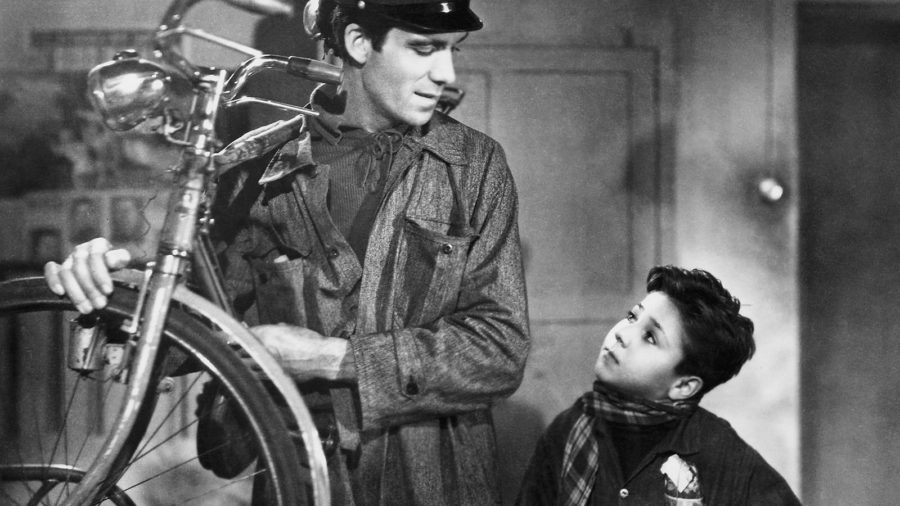
An immortal classic, a leading representative of Italian neorealism, and at the same time definitely one of the best, most poignant dramas dealing with social problems in the history of cinema. The protagonist of Bicycle Thieves is the unemployed Antonio Ricci (Lamberto Maggiorani). A man is desperately looking for a job to provide for his wife and young son (Enzo Staiola). So when there is an opportunity to earn money by delivering and hanging up posters, the hero does not hesitate for a moment. However, there is one catch – to do this job you need a bicycle, which Antonio does not have at the moment. The man, however, does not care too much about this trifle and together with his wife and a set of sheets belonging to her, he goes to the pawnshop in order to recover the once pawned two-wheeler. Unfortunately, on the first day of his new job, Antonio loses his priceless vehicle as a result of the intrigue of the titular thieves. In despair, he sets out to look for a stolen bicycle, accompanied by his faithful son.
Bicycle Thieves can boast of, among others: an honorary Oscar for “the best foreign language film presented to an American audience in 1949” and a Golden Globe in the category “best foreign film”. Vittorio De Sica engaged only naturals to work on the set, i.e. people with no previous acting experience. Lamberto Maggiorani and Enzo Staiola were given their roles because of their characteristic way of walking, which the director particularly liked. It must be admitted that the bold decision of the Italian artist was definitely good for The Bicycle Thieves, adding to the film, so desirable in the case of social cinema, authenticity and significantly strengthening its emotional weight.
Related:
La dolce vita, 1960, dir. Federico Fellini

I must admit that in the case of Federico Fellini I had quite a problem. Which of the many great films by the Italian master to choose? Maybe the heartbreaking story of the innocent Gelsomina and the ruthless strongman Zampanò? Or maybe a visionary story about a creative crisis, which the director enigmatically titled Eight and a Half? However, I decided on something else and bet on La dolce vita – my favourite movie by Federico Fellini. The plot of the three-hour masterpiece from 1960 revolves around the character of Marcello (played by the wonderful, absolutely one-of-a-kind Marcello Mastroianni). The protagonist is a journalist by profession who quickly becomes addicted to the lifestyle of high society and begins to spend his time constantly partying in the company of both Italian and foreign celebrities. At the same time, he tries unsuccessfully to find happiness and love, the existence of which he has long forgotten.
Marcello’s trials and tribulations become a pretext for Fellini to portray the morally rotten top social classes. Sexual promiscuity is the order of the day here, there are no rules, no norms. And although the exclusive world of the Italian elites tempts with its superficial attractiveness, in fact it turns out to be only the entrance to hell, which destroys the people who visit it from the inside. In 1960, Federico Fellini received the Palme d’Or at the Cannes Film Festival for The Sweet Life.
Suspiria, 1977, dir. Dario Argento
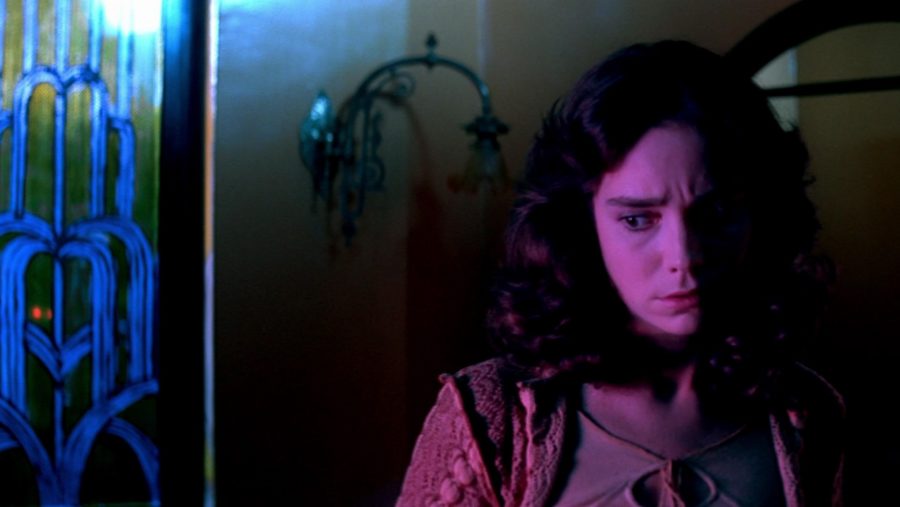
A must for all lovers of horror cinema and its specific Italian subgenre – giallo. Young and talented American dancer Susy (Jessica Harper) arrives with great hopes for a professional career at a famous European ballet school for girls. Upon arrival, he discovers that strange, inexplicable things have been happening in the institution for some time. Schoolgirls disappear in unexplained circumstances, and some of them are found dead the next day. However, this does not discourage the ambitious Susy, who decides to continue learning dance in this place, and at the same time try to solve his, as it turns out, extremely dark secret.
Suspiria has become a legend of Italian, even world cinematography mainly due to the original, mesmerizing atmosphere that is felt in every second and every frame of Argent’s work. The biggest credit for this is the fantastic music by the Goblin group, which very skillfully builds tension and a sense of constant threat. Despite the fact that Suspiria did not bring the director any prestigious film awards, such as the Golden Palm or the Golden Lion, over time it gained the status of a cult work and a remake, which was directed by Luca Guadagnino.
Cinema Paradiso, 1988, dir. Giuseppe Tornatore
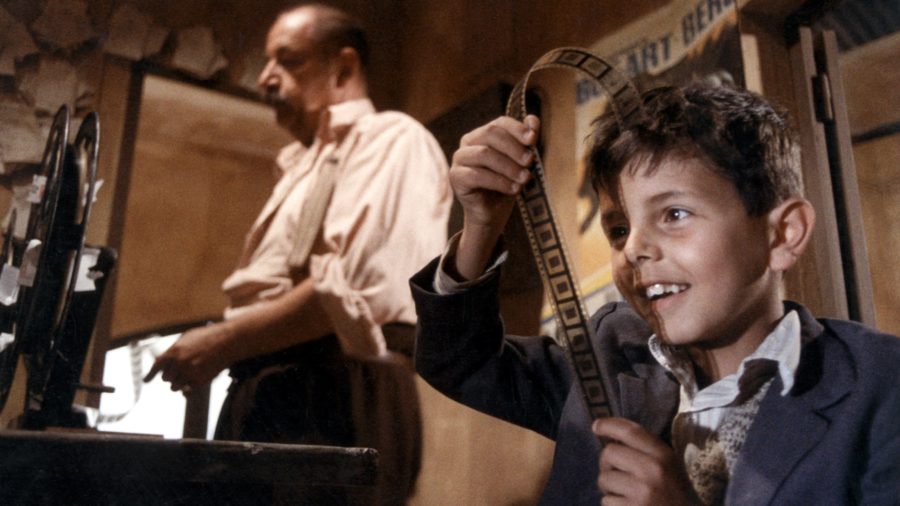
Of the love of cinema, for the love of cinema. Giuseppe Tornatore’s second feature film is the story of Toto, who is in love with moving pictures. The boy, enchanted by the magic of the X Muse, befriends the cinema operator Alfred, who quickly succumbs to the unruly child’s spell and allows him to sit in his room above the cinema hall. The characters screen and watch their beloved movies together. Unfortunately, all good things come to an end soon. Soon, a tragic accident takes place, which puts an end to their daily meetings and has a huge impact on the lives of both heroes.
Cinema Paradiso was showered with awards and quickly recognized as one of the best films in the history of Italian cinema. Tornatore’s movie was honoured with, among others Oscar, Golden Globe, five BAFTA awards and a nomination for the Golden Palm. What made Cinema Paradiso such a huge international success? A bit of everything, I guess. A perfect main theme, great leading roles, a precise script and phenomenal music composed by none other than Ennio Morricone himself. If you love cinema, take my word for it – after watching Giuseppe Tornatore’s film you will love it even more.
The Great Beauty (La grande bellezza), 2013, dir. Paolo Sorrentino
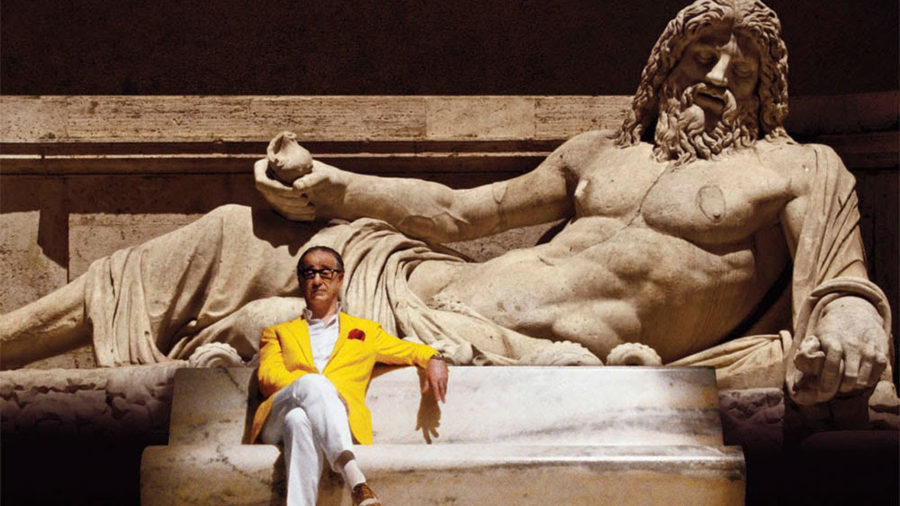
Did you like La Dolce Vita of Federico Fellini? If so, you will also love The Great Beauty by Paolo Sorrentino. Jep Gambardella (Toni Servillo) is the author of one excellent novel and a journalist living every day in Rome. Like Marcello in Fellini’s masterpiece, the hero of The Great Beauty lost himself in the life of the so-called high society. We meet him during a grand party organized on the occasion of his sixty-fifth birthday. For Jep, this event becomes a catalyst for long walks along the streets of Rome and many interesting reflections devoted primarily to irretrievably lost youth and inevitably approaching death.
Associations with La Dolce Vita are most appropriate. Like Fellini, Sorrentino chose a journalist as his protagonist, who is more interested in taking part in prestigious banquets and social meetings than in work. However, Jep is much older than Marcello, which allowed the author of Youth to weave into the film themes of melancholy and nostalgia that constantly haunt the character played by Toni Servillo. The longing for youth and the vitality associated with it, as well as the first love that shaped the protagonist forever and appears in his eyes years later as a lost paradise – these are the demons following Gambardella step by step around the Eternal City. Just after its premiere, The Great Beauty was hailed as a masterpiece, and Sorrentino was hailed as the new Fellini. The film brought the Italian director, among others, four European Film Awards and an Oscar in the “Best Foreign Language Film” category.



